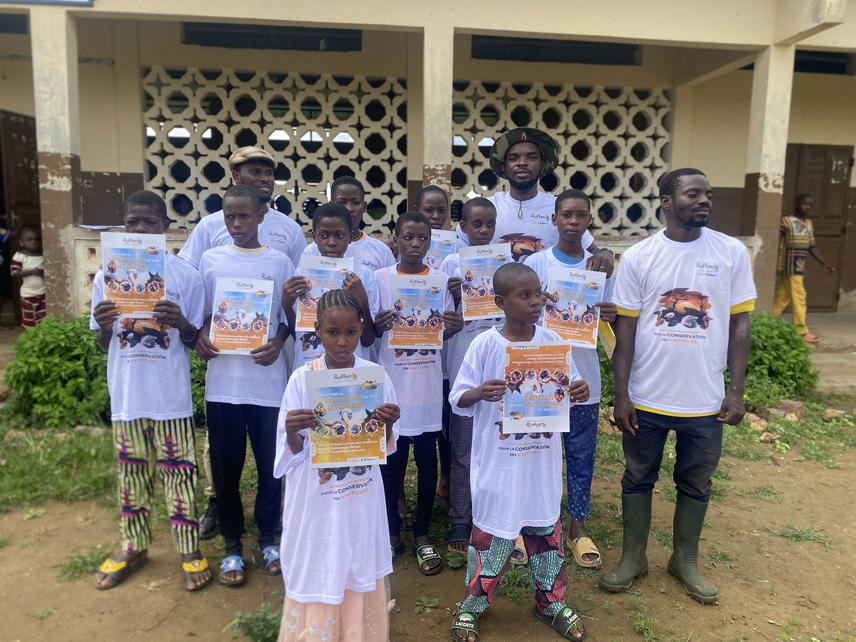Article featuring the project.
Hounnouvi Fidele Ezechiel Koffi
The project we’re embarking on is a vital conservation effort aimed at safeguarding the future of four critically endangered vulture species in Benin: the Gyps africanus (white-backed vulture), Necrosyrtes monachus (hooded vulture), Gyps rueppelli (Rüppell’s vulture), and Trigonoceps occipitalis (white-headed vulture). These majestic birds are on the brink of local extinction due to a myriad of threats, including habitat loss, illegal poaching, agricultural expansion, and poisoning.

Awareness-raising session for pupils at a school in the village of Sonsoro. ©BOKO Wenceslas.
This work is rooted in the urgent need to understand the nesting requirements of these vultures to develop effective conservation strategies. By focusing on three protected areas located at the north-east of Benin (the Upper Alibori, Sota, and Three Rivers forests) and the surrounding villages, our project aims to collect crucial data on vulture ecology and habitat. This information is key to identifying and protecting nesting sites that are critical for the vultures’ survival and reproduction.
The contribution of this work extends beyond research; it involves the local communities as pivotal players in vulture conservation. By encouraging dialogue and collaboration between stakeholders, in particular protected area managers, local communities and conservation associations, this project promotes participatory conservation strategies adapted to the socio-economic and cultural realities of the regions concerned.
Over the course of seven months, our efforts will not only enhance the understanding of these vultures’ ecological needs but also raise awareness and drive community involvement. The dissemination of our findings and conservation messages through public awareness campaigns and environmental education will play a significant role in altering perceptions and behaviors towards these often-misunderstood scavengers.
Ultimately, this project stands as a beacon of hope for the vultures of Benin, contributing to their preservation and the ecological health of the region. By protecting vultures, we’re also safeguarding their invaluable role in maintaining a clean environment and curbing the spread of diseases.
This initiative represents a crucial step towards informed, community-led conservation action, which is essential to the sustainable preservation of the Earth's biodiversity. By incorporating local knowledge and the involvement of local people, this project underlines the importance of collective responsibility in promoting a sustainable future for wildlife and ecosystems.